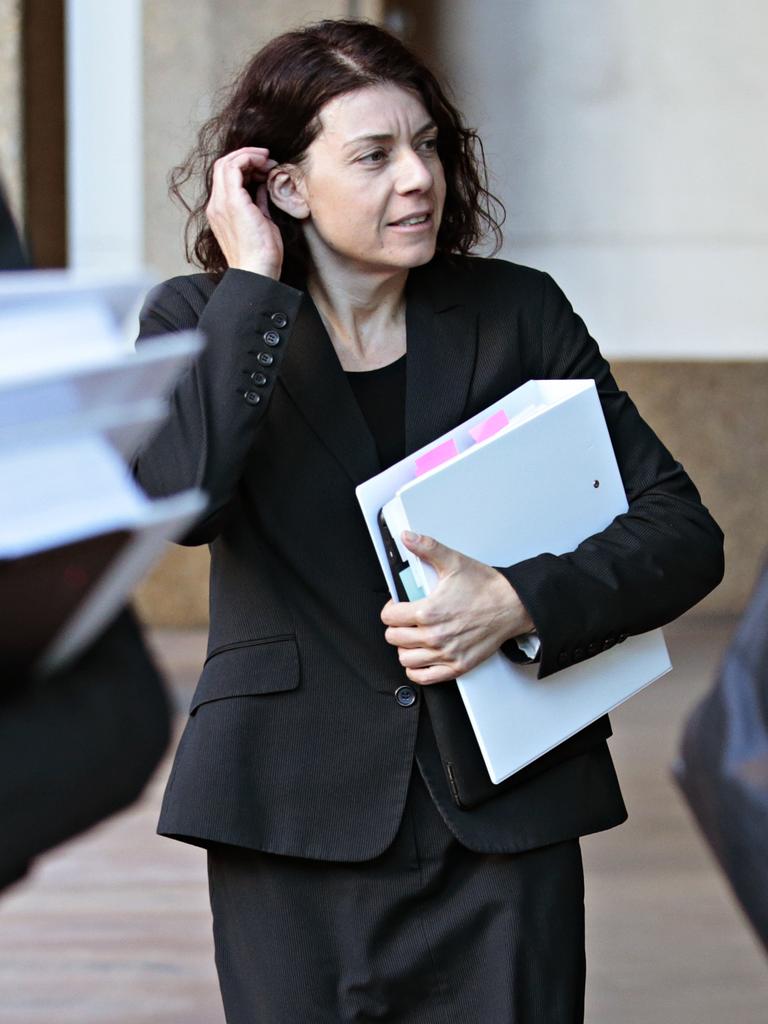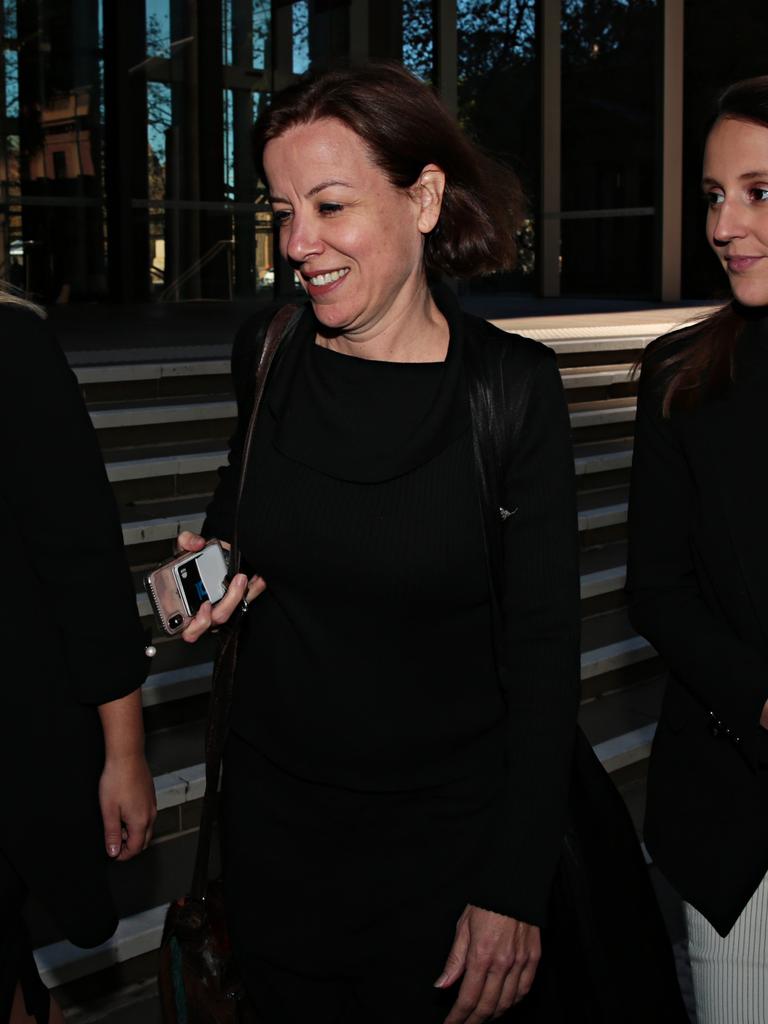Federal Court rejects Christian Porter’s argument he should only pay 70 per cent of legal costs
Former Attorney-General Christian Porter has suffered another legal blow, with a Federal Court decision set to cost him big.
Former Attorney-General Christian Porter has suffered a legal blow with the Federal Court ordering him to pay costs that are likely to amount to hundred of thousands of dollars.
The new costs are on top of his estimated $500,000 plus in defamation legal costs for his now discontinued defamation case against the ABC over rape allegations that he denies.
The ABC has agreed to pay him $100,000 in legal costs under a mutually agreed settlement of the matter. The ABC’s own legal costs are estimated at $680,000.
Mr Porter has left the door open to a mystery benefactor stepping in to pay his legal costs which are estimated to now be at least $700,000, but he has yet to disclose to Parliament any details.
Before the matter settled, Jo Dyer won a court order to prevent Mr Porter’s high-profile barrister, Sue Chrysanthou SC, from acting for him against the ABC.
The Federal Court found on Friday night that both Mr Porter and Ms Chrysanthou should pay Ms Dyer’s costs.
Ms Dyer is a friend of the woman who accused Mr Porter of rape before her death by suicide in 2020, sparking the establishment of a NSW police strike force.
Mr Porter strenuously denies the allegation. He took defamation action against the ABC for a story it published in February revealing an unnamed cabinet minister was the subject of a rape allegation that was being investigate by police.
RELATED: Reporters deny ABC is ‘at war’

Ahead of the case, Ms Dyer won a court battle to stop Sue Chrysanthou SC from acting as Mr Porter’s lawyer on the grounds she had a conflict of interest because she had previously held discussions with Ms Dyer about the rape allegations in relation to a separate defamation matter.
The judgment on costs released on Friday night relates to the case that Ms Dyer brought in relation to Mr Porter’s choice of legal counsel.
Justice Thawley ordered Mr Porter and his lawyer Sue Chrysanthou to pay for Ms Dyer’s legal costs.
Ms Chrysanthou SC argued that she should not be ordered to pay costs, submitting that: once Ms Dyer commenced these proceedings she took a neutral position as an officer of the Court submitting to the orders as the Court deemed fit.
However, Justice Thawley rejected these submissions.
RELATED: Staffer lodges complaint about Porter


“Ms Chrysanthou submitted to whatever order the Court deemed fit. Her submission that she took a ‘neutral position’ should be qualified,” he said.
“Before proceedings were commenced, Ms Chrysanthou, through her solicitors, adopted an adversarial approach, including threatening an application for security for costs in the amount of $150,000 should proceedings be commenced. This is not intended as a criticism.
“But it is a part of the context in which the question of costs must be determined. Ms Chrysanthou was not ‘required’ to file a concise statement or an affidavit. Provision was made for her to do either of those things if she so chose.”
The Judge noted that Ms Dyer formed the view that the commencement of the proceedings was necessary because Ms Chrysanthou had at all times refused to accept either that: (a) there was a relevant risk of misuse of confidential information; or (b) irrespective of whether or not there was a risk of misuse of confidential information, it was in the interests of the administration of justice that she cease acting for Mr Porter.
“Ms Chrysanthou’s position was shown to be wrong in both respects. Ms Dyer was wholly successful,” Justice Thawley said.
Justice Thawley also took issue with Mr Porter’s argument he should only pay 70 per cent of the costs in light of “the late service” of James Hooke’s affidavit in reply.
“First, Mr Hooke’s affidavit was not served late,” Justice Thawley said.
“Secondly, it is true that Mr Hooke’s affidavit was the first occasion on which the applicant put forward evidence of what was actually said at the conference on 20 November 2020 rather than identifying the topics which had been discussed. It would have been possible, and preferable, for Mr Hooke to have identified in his evidence in chief precisely what information had been given which was confidential. In any event though, I do not accept that the evidence ultimately added an additional day to the length of the hearing. Even if it had added to the length of the hearing, in a case of this kind, litigated under pressing time constraints, that would not of itself be sufficient to reduce the applicant’s costs by 30 per cent.”
Ms Dyer has subsequently threatened to sue Mr Porter for defamation herself, over comments he made outside the court after he discontinued his defamation action against the ABC.




